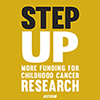Young Adults Transitioning to Adult-focused Care
As a young adult who was treated for cancer in childhood, your health care needs are now more properly focused in an adult care setting, with a primary health provider who is either a family practice or internal medicine specialist. You should also know that there are a growing number of specialized programs for adult survivors of children’s cancer whose clinicians focus on long-term issues related to children’s cancer and its therapy. Whether you work with just a primary health provider or a provider and a long-term survivorship program, it is important for you and your team to be knowledgeable about your cancer and the treatment you received.
You can request information from the healthcare team and hospital that treated you for cancer that includes the following information, which will help you and your adult-healthcare team make the most informed decisions possible.
Specific Treatment Information
- Tumor characteristics, including sites, stage, grade
- Details on treatment
- Type of treatment (surgery, chemotherapy, radiation, transplantation, hormone therapy, gene therapy or other)
- Agents used (regimen, total dosage)
- Dates of treatment
- Serious side effects
- Support services provided (psychological, nutritional, other)
- Contact information for treating institutions and key individual providers
- Name of key point of contact and coordinator of continuing care
Long Term Information
- Possible late and long-term effects of treatment
- Possible psychological effects
- Information on possible insurance, employment and financial issues, if any
- Need for ongoing health maintenance and specific recommendations for lifestyle changes to promote health
- Genetic counseling and testing
The First Month off Treatment
Two to Six Months off Treatment
Six to Twelve Months off Treatment
One Year off Treatment and Beyond
Long-Term Follow-Up Care








